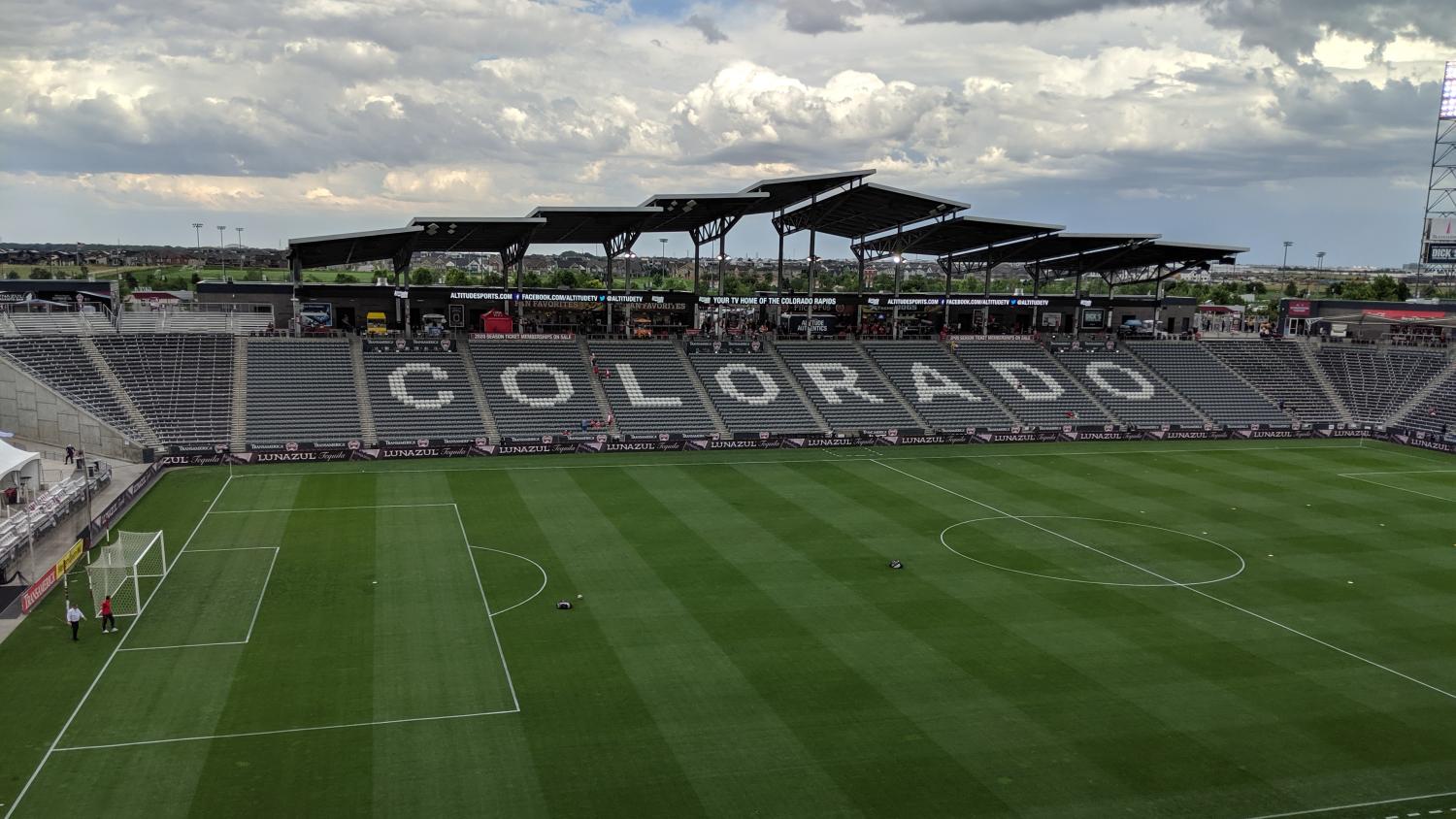Although national news reports have died down as protests have become more peaceful, there is a widespread movement going on across America, protests demanding Black Lives Matter. In the wake of George Floyd’s murder at the hands of Minneapolis police, the soccer world has emphatically joined the movement, in Europe and the U.S.
Soccer is no saint when it comes to racism in America, but many in the sport are now speaking up to years of systemic white supremacy. Colorado Rapids coach Robin Fraser spoke to MLSsoccer.com this week about his experience of growing up black in America.
One of two black coaches in MLS, Fraser talked to Charles Boehm and you should read the entire article here. Fraser was born in Jamaica but grew up in the U.S., playing for 10 years in MLS before starting his coaching career shortly thereafter in 2007. He recorded 27 caps with the USMNT and was named head coach of the Rapids last August, his second head job after leading Chivas USA in 2011-12.
I just want to leave you with the words of Fraser, which really speak to why the Black Lives Matter movement is so important.
Robin Fraser On Growing Up In America
I left Jamaica at Christmas break and visited relatives in New York and Canada, then started school on whatever, January 4, 5. It was my first experience in school here, and throughout the day there were whispers of a fight that was going to happen. And at the end of the day there was a fight between the blacks and the whites. I looked around and thought, “Huh, this is what America is like. This is very odd.” To actually witness it on Day 1, this huge disparity between people for no apparent reason other than the color of their skin, that was hard for me to wrap my head around.
I think the way to put it is that you’re very aware that you're black in America. I’ve not had too many stories of really overt racism, but you just have been around it enough and seen it enough that you’re always aware. You’re always aware that you’re black, which is interesting because I was talking to a white friend who was saying, they’re never conscious of being white, or rarely conscious of being white — only perhaps if they’re in a very black neighborhood. But this is the existence that blacks live. You’re always aware, and it stinks. It stinks. It’s rather obvious to say, but it’s not great.
You don’t want to get pulled over in a white neighborhood. What are the implications of that going to be? You’re just very aware of being a black person in the U.S., because I think without a doubt there’s always been a feeling that, it’s almost like you’re an outsider at times. You’re an outsider living in someone else’s country.
Robin Fraser On Coaching In Toronto
I took the subway to training every day, and it struck me very early there how easily people of different races interacted. For me it was different than what I had seen in the U.S. It just seemed like people of different ethnicities just melded and were able to flow seamlessly. I’m sure there are racial issues there, like there are just about everywhere else. But I definitely got the sense that they are more inclusive. … I remember noticing that within the first six months, always thinking, it’s really cool how in Canada, people just are.
Robin Fraser On Dr. Cornel West’s Poignant Interview With Anderson Cooper
In today’s funeral for George Floyd there was "not one reference to hatred or revenge. It was all about love and justice," says Dr. @CornelWest.
"The Floyd family lifted up that spiritual moral banner in the midst of a moment in which we got all of the lies and crimes." pic.twitter.com/un1CtmXGFj— Anderson Cooper 360° (@AC360) June 10, 2020
He mentioned the fact that when we see the number of white faces that are now involved in these protests, you feel hope. Because think once upon a time, this was very, very much a black problem. When I see the amount of diversity in the crowd, when I see that people are genuinely interested in change — and people of other races are genuinely interested in change — it feels like there is something different going on. It starts with your own conduct. Where you have an opportunity to do be right, you do right. And where you have an opportunity to lend your voice to the cause, you lend your voice to the cause. I just think that even if you’re marginally involved, even if you’re just slightly involved somewhere, the more people that appear to want change and the more people are willing to demand change, then the sooner change is going to happen.
.@ColoradoRapids head coach Robin Fraser shares his thoughts and his story.
— Major League Soccer (@MLS) June 14, 2020
While MLS clubs struggle to call out the white supremacy and police brutality that sparked these recent protests, the clubs should pay attention to Fraser’s words — and those of the brilliant Dr. West — on the league’s own website.
We all should.



